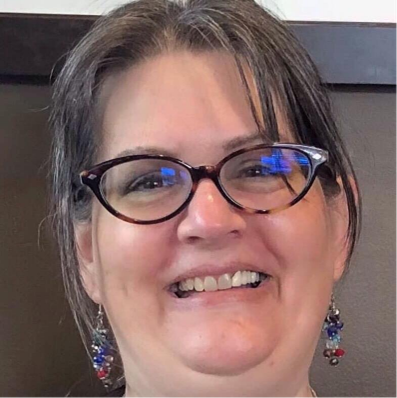Posted • Last updated
Closed
Open to Provincial Region, Patient partners across the province
Last updated
Have you had hip or knee replacement surgery and want to help improve rehab for others like you? Collaborate with researchers and clinicians to help determine the best rehab joint replacement patients should have to improve patient outcomes after surgery.
Open to: Patient partners across the province
Lead Organization or Department
BC SUPPORT UnitAim
The goal of this initiative is to see how rehab toolkits made for both clinicians and patients help with rehab for joint replacement patients after surgery. Patient partners will share their thoughts and experience as part of the research team to ensure the research is reflective of patients’ and families’ needs. You can serve as advisory committee members to collaborate over an ongoing research program and/or for individual research projects. This includes helping with grant applications, preparing research documents and tools, taking part in research and data analysis and much more depending on your interests.Level of Engagement
This opportunity is at the level of collaborate on the spectrum of engagement. The promise to you is that the health care partner will work together with you to formulate solutions and incorporate your advice and recommendations into the decisions to the maximum extent possible.Eligibility
If you have a strong interest in this work but have not yet completed a PVN orientation and volunteer agreement, are unsure if your experience is a good fit or feel another format of engagement would work better with your availability, please contact the engagement leader directly.Logistics
- Vacancies: 4
- Date/Time: To be determined with patient partners
- Location: Via telephone and web conferences
- Commitment: Once a month, 1-2 hours in March, with 2-4 hours/month as project ramps up for three years. Patient partners can determine length of time in project, based on personal needs.
Reimbursement
Out of pocket expenses (mileage, transit fares, parking) will be reimbursed.Background
After joint replacement surgery, most patients do some form of supervised rehabilitation (rehab). There is tremendous variation in how, when and where the rehab is provided and how well the desired outcomes are achieved. Evidence-based rehab recommendations are available for clinicians. To support consistency in performing rehab best practices and close the research-practice gap, we developed rehab quality indicators (QIs). The QIs reflect the minimum standard of rehab care patients can expect to receive before and after joint replacement surgery. To make the QIs part of routine practice, we designed two online toolkits of resources. One toolkit targets patients (EQUIP-TJR) and the other clinicians (QUICK-TJR). Patients and clinicians will be trained how to use these toolkits. We will measure changes in use of QIs. Four health regions in will be involved over 18-months. We will: • Evaluate 10 QIs about the rehab phase after joint replacement using information from patient health records and a patient questionnaire • Measure patient and clinician uptake of the online toolkits • Compare the patient and clinician results • Measure satisfaction with the resources and support provided by the research team • Explore the relationship between quality of care (QI adherence) and patient outcomes. The main measures of toolkit effectiveness will be patient self-report of day-to-day function and quality of life at their time of discharge from rehab. Patient and clinical partners will be engaged at all stages. They will contribute to local and national activities to share the findings through webinars, public forums, social media, papers and conference presentations. We welcome patient engagement at all levels for both our ongoing research program and specific research projects or studies. 1. Advisory Committee We have a well-established advisory committee made up of patients, clinicians (e.g. physiotherapist, occupational therapist, orthopedic surgeon), decision maker (health care manager) and KT specialist. We meet with members of this advisory group once a year by teleconference or in-person to review their ongoing interests and availability to participate and receive feedback on their patient or clinician engagement experience. Patient advisory committee members contribute in a variety of ways including: • Helping to generate ideas or identify issues to address through our research program • Preparing letters of support to include with grant applications and providing written feedback on grant proposals, reports and documents such as patient information and consent forms, questionnaires and KT resources (e.g., patient information video, rehab passport, infographics) • Sharing their unique perspectives of having had joint replacement surgery and what aspects of their rehabilitation care did or didn’t go well to help us identify areas for improvement • Helping to ‘spread the word’ through their own patient, community or social networks when we are seeking broader feedback on documents, trying to recruit patients to participate in some aspect of the research or sharing results of our findings 2. Patient partners are even more involved in specific research studies and are considered collaborators or ‘co-investigators’ on our projects. Meetings are still limited to 3-4/year however, they are engaged at a much higher level and fully collaborate on our projects including: • Assisting with writing research proposals including the lay or plain language summary • Co-developing research forms and tools including consent forms, questionnaires and other data collection forms • Co-conducting the research activities such as assisting with interviews, focus groups and usability testing • Helping to review the research findings to make sense of the results and determine how best to share the information with different target groups (i.e., patients, general public, clinicians). • Co-writing abstracts, newsletter summaries, manuscripts and when possible, co-presenting research findings at conferences and public meetings or forumsHealth Care Partner Contact Information
Jami Brown
Engagement Leader, Patient and Public Engagement | Fraser Valley
604.510.0449
jbrown@bcpsqc.ca

